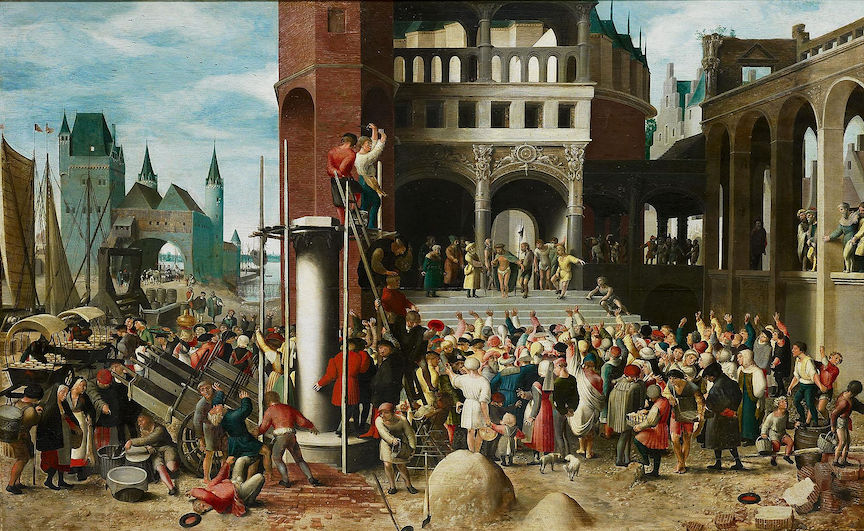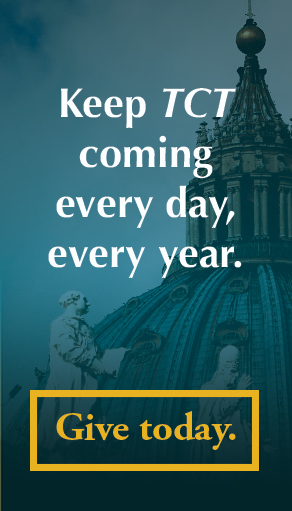When the General Secretariat for the Synod announced that laypeople will have full voting rights at this October’s assembly, it self-consciously added that this does not reduce synodality to representative government. In January, Cardinals Grech and Hollerich felt compelled to reassure the bishops that synodality does not replace episcopal authority with popular sovereignty. Their insistence itself raises serious doubts. We might suspect, as Hamlet’s mother shrewdly noted, that something lies behind this protesting too much.
The General Secretariat contends that including lay voters is not a shift towards democracy because elections will not take place. The pope will choose these laymen and women, and representation will not be proportional. But all this is beside the point. The mechanisms governing the synod may not mirror standards of modern representation, but the Synodal Process is built upon the legitimizing principle of representative democracy, namely that authority requires participation.
At bottom, synodality is a response to the Church’s loss of credibility. The local-level Vademecum and the continental stage working document call for “wide representation” of those “equal in dignity,” in contrast with past reliance on unilateral decision-making. In other words, as the final document for the European continental stage directly asserts, “Authority must be deployed in a more fraternal and participative governance.”
But the synodal documents don’t simply call for lay involvement to ensure transparency. Would that it were so simple. They frequently cite the International Theological Commission’s 2017 study on synodality, which asserts that “synodality is the specific modus vivendi et operandi of the Church, the People of God, which reveals and gives substance to her being as a communion.” Implicitly, this is saying that synodality is necessary to legitimize Church authority because that authority derives from God’s will understood as the sensus fidei (“sense of the faith”) that the assembled People of God discerns together.
Lumen Gentium indicated that the consensus of the faithful, both ordained and lay, is an infallible sign of truth. By this, it simply seems to mean that universal reception of a teaching declared by the hierarchy confirms that teaching’s veracity. But the “Synodal Process” goes beyond this notion, interpreting the People of God’s share in “Christ’s prophetic witness” to mean that free and fair “listening” is a source of divine guidance. Christ’s words – “He who hears you hears me” (Luke 10:16) – are thus applied to the whole People of God, whose voice becomes oracular, a means of determining what God wills for His Church.
The consultation in the Synodal Process is not simply majoritarian rule: it is a means of authorization. We know that we are following God’s will only once we listen to the whole People of God whose sensus fidei indicates the general will for the Church. The decisions of the hierarchy are legitimate only insofar as they correspond with this will and carry out intentions ascribed to the Holy Spirit.

Extended participation in this process (“inclusivity”) is held to be necessary so that we know we are hearing the whole People of God, and therefore the divine truth that it communicates. According to this view, we cannot know the sovereign will of God by listening to those who claim to rule by divine right (i.e., the bishops, through apostolic succession). We come to know the sovereign will by consulting ourselves as a whole community, and we are obliged to obey only the divine will that we, the whole people, have discerned together. Authority is legitimate only when it comes from (or rather, through) the people.
Earlier articulations of the sensus fidei were quite careful to clarify that “the opinions of the faithful cannot be purely and simply identified with the ‘sensus fidei.’” Pope St. John Paul II explicitly warns that the sensus fidei is not a sociological phenomenon. And a 2014 study of the sensus fidei from the International Theological Commission (then under Cardinal Mueller) even contrasts the sensus fidei with the democratic principle of popular sovereignty.
The same study clarifies that “in the actual mental universe of the believer, the correct intuitions of the sensus fidei can be mixed up with various purely human opinions.” These treatments of the sensus fidei are careful to observe that, while the Church as a whole has an “instinct” for the truth, one will not necessarily discern the truth by listening to people in the pews (this is certainly true of the Church’s teaching on contraception).
All voices in the Church do not equally convey the will of God because not all persons claiming to be within the Church are equally receptive of the true faith.
By contrast, the synodal Vademecum declares that the voice of the People of God is heard only by respecting the equal rights of all the baptized – including “Catholics who rarely or never practice their faith” – and even of all the unbaptized who come to a synodal listening session. Why so? Because the Synodal Process accepts the democratic principle that authority is legitimate only when representation is complete – when all voices claiming to be within the community of the Church are given a voice.
Cardinals Grech and Hollerich are convinced that the Synodal Process will enable us to answer the question, “Church, what do you say of yourself?” Christ certainly requires the faithful to ask themselves, “Who do you say that I am?” But only the Petrine office is safeguarded in making the right response: “You are the Christ, Son of the Living God” (Matthew 16:16).
Christ himself prays for Peter to have the strength to fulfill this office. Our Lord does not make the same intercession for the crowds that follow him. Listening to this crowd, one hears them say “Hosanna!” on Palm Sunday but “Crucify Him!” on Good Friday. It’s worth remembering that an incautious “walking together” led to God’s People placing Him on a cross after a public consultation.

















